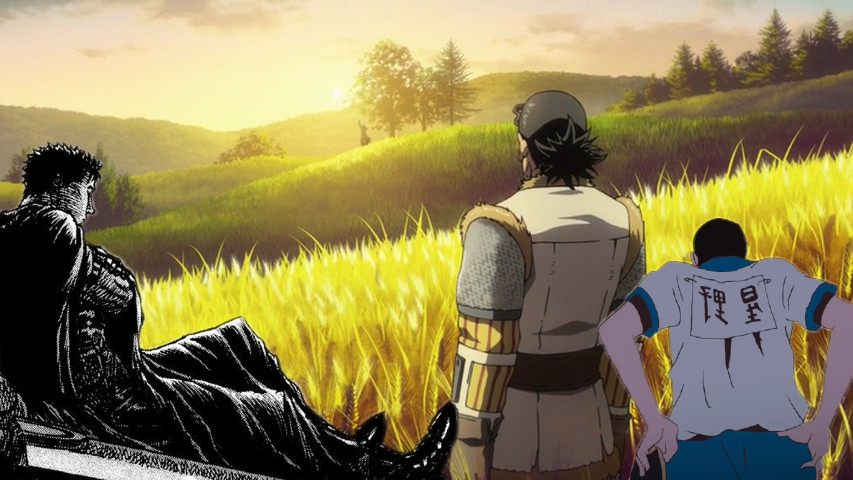
Relationships are complicated. From learning how to communicate and respecting each others boundaries to how they are established, grow and change, there’s a lot that goes into them. And this is true for all relationships, not just the romantic! Friends can grow apart without proper communication, or grow into a romance with it. Family can be pushed away when you don’t respect each other properly, or you could pick up a whole new one from those around you. In my eyes it’s these complications, these ugly details that each of us interpret differently and draw our own lines with, that make relationships so difficult to portray and discuss in media. Why some may love and believe one character dynamic but push back and scoff at another, why some may see a romance where others see a deep friendship. And the best part? When approached in good faith and earnestly thought about, no one is wrong, because each of us are looking for something different.
So to help figure out what relationships mean to me, and hopefully you as you read this, lets took a look at the various form a relationship can take as defined by the Greeks, using examples from anime to illustrate them. Sound fun? Good, because I’ve been looking forward to this for a while. So without further ado, let’s dive into the 4 (8?) forms of Ancient Greek love, and my first big post since retirement!
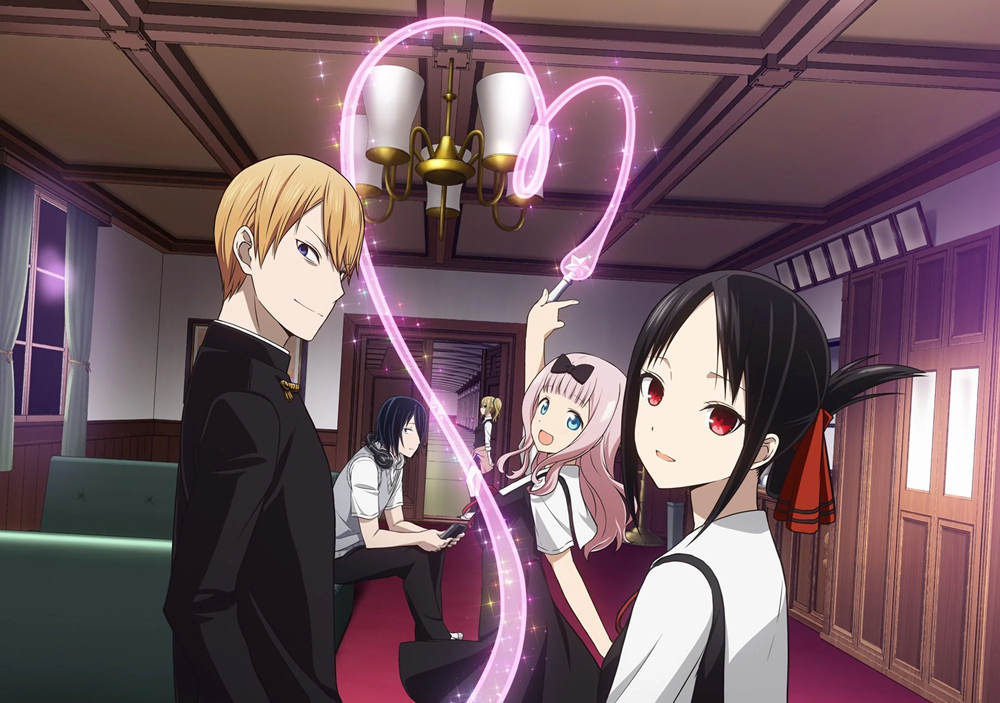
What is Love? – Baby don’t hurt me…
First up, what exactly are the many forms of Greek love, and why can I not decide on a number? Well to be frank, Greek isn’t actually special for having multiple words for “love”, every language does. In English we have words like “adoration”, “devotion”, “fondness”, “lust”, and “respect”. French has “L’amour”, “L’amitié” and many more that I could list if I actually remembered my French lessons in college. The point is, it’s not uncommon for languages to have multiple words denoting different kinds of love, different forms of respect and “like”. The ancient Greek versions have simply been romanticized over time due to much of our language having Greek roots. I’m not immune to this, I’ve loved the way the Greek forms are delineated and think they make for a fun discussion. The fact they’ve been discussed and widely passed around only makes me more comfortable using them here.
As for the confusion over the number, this largely comes down to personal preference the confusing passage of time. While all of these words were used in Ancient Greece, commonly found in works by Plato and Aristotle, my understanding is that they first entered the public zeitgeist with the publication of C.S. Lewis’ book “The Four Loves“. This book discusses a few of these forms of love present in the Bible, such as Agape and Eros, and became the basis for a lot of the early public interest in them. As more and more people looked into it however, more scholars weighted in and such, more and more words were rediscovered and added to the list. Even the eight I discuss here could be said to be incomplete, with words like Xenia and Eunoia occasionally being included as well. The point is, no one can really agree on how many words for love the Greeks had, for a whole host of reasons I won’t get into here. So just know I picked the eight I felt best captured the various kinds of romance we see in anime, and we’re going to explore them all.
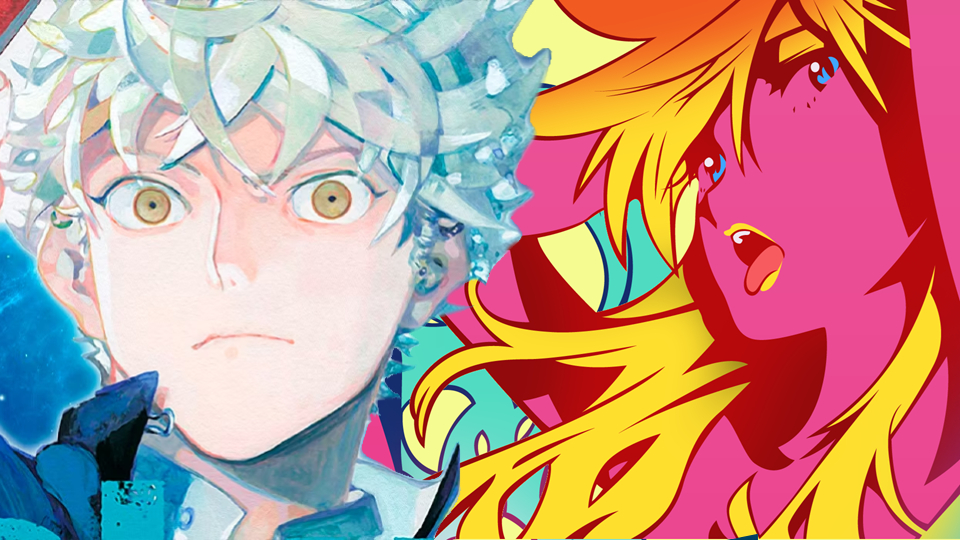
Eros – Passionate Love
First up we have what may seem like the simplest, basest, most straight forward form of love: Eros. To most, the first thing that comes to mind upon reading Eros is “Lust”. The love of the physical, attraction not to the personality or mind of an individual but to their body. In a word, sex. To put it in anime terms, this first understanding of Eros is best embodied by Panty Anarchy, from Panty and Stocking. Panty is a sex-obsessed pest who is largely incapable of having a relationship where sex is not only front and center, but the sole purpose of the relationship. In fact, her stated goal over the course of the series is to have sex with 1,000 men during her time on Earth. The one exception to this is her sister, Stocking, which is a different form of Love we will discuss after this, Storge.
A small aside, it’s worth noting here that these various forms of love are not mutually exclusive. From loving multiple people in different ways to loving the same person for various reasons, it’s important to remember that these words are basically just adjectives. They describe a persons relationship, not restrict them. In fact as we go through these forms of love we will discuss how some of them are often better described as transitionary states, rather than the final stage of a relationship. A great example of this is one we are already talking about, Eros, and how many relationships begin as physical attraction and then morph into something more. This is partly due to the second, lesser known, definition of Eros and the subtle way it changes what this love represents: Passionate love.
On the surface, this new description may not seem like it change much. Sex and lust is still passionate, right? Well yes, that’s because lust is a subset of what passion covers. But there is a difference in scope between them. Where lust is about the need for physical fulfillment, passion, in Greek philosophy, is more about the inherent urge to seek out truth and beauty in the world. Both are needy and one-way in their expression, they seek out fulfillment without providing it for others. It is still what I would call a “selfish” love. But passion is not restricted to any one subject or form of expression. You can express your passion, can seek out the worlds beauty, in everything from writing to art to travel to sports. In anime, the character I think best represents this would be Yatora Yaguchi, from Blue Period.
Still ongoing, Yatora spends great swathes of Blue Period seeking out the truth about himself, and how best to express that through his art. He becomes so consumed by this new passion that he focuses on it to the exclusion of almost all else around him, including those he would call friends. He hurts them through his inattentiveness, through his selfish desire to know and express more, and he places so much of himself in his art that he seeks validation through it. Of course sometimes he helps others, either through their problems or to express themselves better, but it generally occurs either accidentally, through his own search, or out of guilt for his prior inattentiveness, taking him away from his own art. Yatora has passionately thrown himself into his art, expecting nothing back in return. That’s the nature of Eros, the selfish, one-way, passionate form of love.
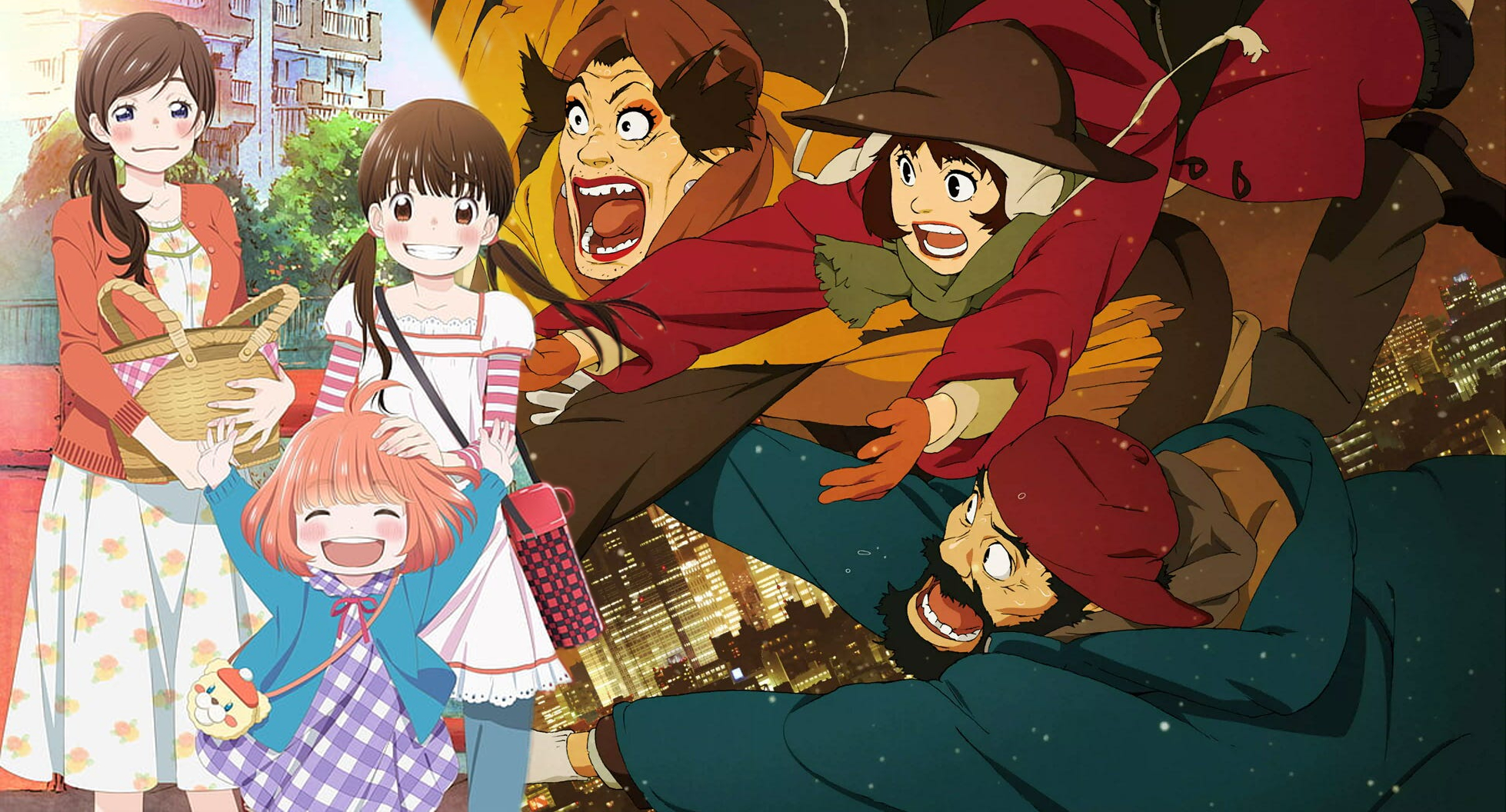
St0rge – Familial Love
This brings me to Storge, commonly known as Familial love. It is the love a parent feels for their child, a brother for their sister despite their disagreements, a daughter for their father even after he embarrasses her in front of her friends. Similar to Eros, Storge is generally understood as a one-way love. A child rarely recognizes and is truly able to reciprocate the love a parent may feel for them until they are much older after all. Unlike Eros however, Storge is a slow burning, protective sort of love. It’s not passionate, it doesn’t burn hot and fast before going out, it lingers. Not unlike how it can be difficult, even in times of conflict between family members. to not love them even through the trouble. As such, the best representation I can think of in anime for Storge has to be the Kawamoto family, from March Comes in like a Lion.
Due to their ages, the Kawamoto siblings are able to show every perspective of Storge you might think of. In Akari we get the unconditional, protective, selfless love of a parent, looking after he sisters and doing everything in her power to give them a future, despite still being young herself, sacrificing what should be the prime of her life. Meanwhile in Momo we get the unknowing recipient of this love, the child who doesn’t understand the sacrifices their parents make for them and are only able to live and enjoy their life because of them. She loves her siblings, just like they do her, but she lacks the experience to truly understand it. Which brings me to Hinata, the middle child, who is old enough to understand what Akari does for them, who sees and understands this unconditional love, but has few ways of reciprocating it. She can only watch, and do her best to ensure Akari’s actions aren’t in vein, perhaps lending a hand here and there with Momo.
Now you might think that this familial love is all there is to Storge, but that isn’t the case. Much like Eros, and indeed almost every love we will talk about, there’s another understanding, another way to look at it. For Storge is also the love of the familiar. The love of close friends and chosen family. From this perspective, the core of Storge remains unchanged. It’s still a one-way, slow burning, selfless love. But it’s scope has broadened a bit to include not just blood relations, but chosen family as well. Those who were there for each other when they needed it most, whom they spend great deals of time with, whom they trust. This overlaps our next love a bit, Philia, but much like with Eros there are small distinctions between them. For now however, I have chosen the cast of Tokyo Godfathers to represent this aspect of Storge.
Tokyo Godfathers is about a group of homeless people, each from different walks of life but who have all inexplicably found themselves in the same place, united by a common goal of reuniting an abandoned baby with her parents. It’s a fantastic movie, yes I’m using this part of the post to shill it deal with it, showing how the bonds of a family need not be restricted to blood relations. It even goes so far as to fill all the roles of the nuclear family, a father, mother, older child and newborn, with the main cast. Their relationship, their coming together and care for each other as they spend time with each other, is the core of Storge.
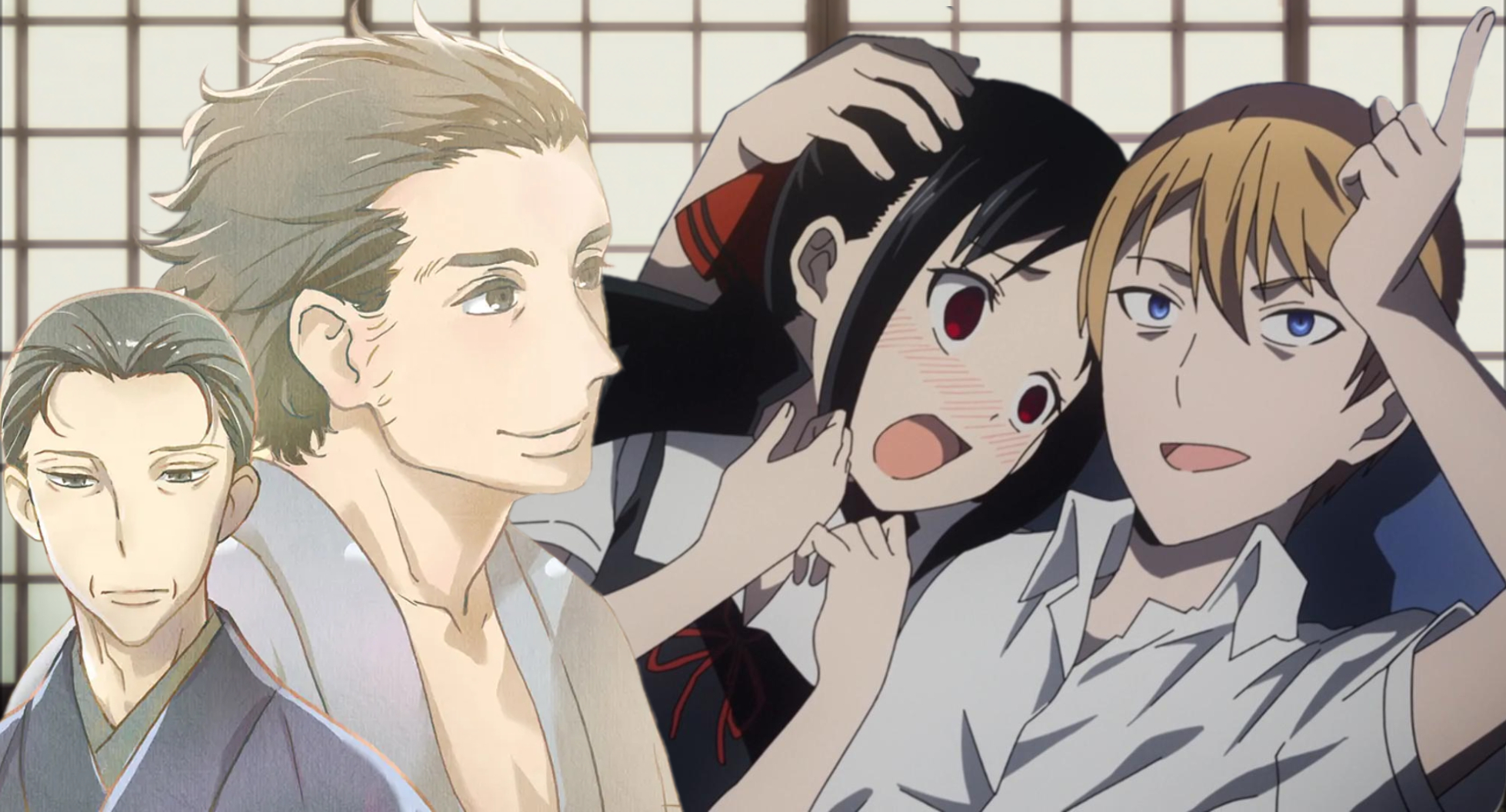
Philia – Friendly Love
Next up is the aforementioned Philia, the affectionate, friendly love. As the name implies, Philia is a love of deep friendship, understanding, and mutual respect. Often called the “Brotherly” love, Philia is the first love we will discuss that is a two-way street. Where Eros and Storge were loves directed upon someone else, loves that expect and require no affirmation, Philia necessitates both parties understanding and acceptance of each other in their entirety. It is the love of equals. To know and love someone wholly and utterly, good traits and bad, to hide nothing and seek only what is best for the other. Due to this, Philia became highly regarded among philosophers like Plato as and even greater than that of Eros. In fact, Philia is the basis for our modern concept of Platonic love.
In anime I believe the best example is Yakumo and Sukeroku Yuurakutei, from Showa Genroku Rakugo Shinju. These are two men who shared everything with each other, who loved the art of Rakugo and sought to carry it into a new age together, and who even in a way died together. They knew each others flaws, saw their best and worst moments, raised each other up and saw each other fall, and loved one another the entire time. Theirs is a relationship of equals, founded on a mutual respect and shared vision for the future of Rakugo. Of course some might disagree, viewing their relationship more romantically. I have at least one friend who vehemently disagrees with me calling them platonic, insisting Rakugo Shinju is a gay romance. But you know what’s nice about that? Romance has a place in Philia as well.
Just like the other romances I’ve covered, Philia also has multiple layers to it. While it is known as the brotherly love, it is also considered the love of soul mates, of loving another person for their mind and who they are, rather than just their body. As such, while Plato believed Philia to be greater than Eros and that carnal pleasure was a distraction from it, he also wrote about how the strongest romantic relationships were founded in Philia and grew into Eros. They were a combination of the two, an attraction to the mind celebrated through the passion of the body. This is distinct from just Eros, which was established is a one-way selfish love, due to the reciprocal two-way nature of Philia. It becomes a harmonization of two people rather than the fulfillment of passion and desire for one.
The most well known example in anime I can think of for this would be Kaguya and Shirogane, from Kaguya-sama: Love is War. Over the course of the series the two go from a mutual respect for each other to (believed) one-way crushes, into an acknowledged romantic relationship between equals. Their progress also covers a love I will discuss near the end of this post called Ludus, but for now I want to focus the root of their attraction for each other. Yes, they think about each others bodies, as every teenager in a relationship does. But that was never the focus for either of them, more a gag for the series than a serious foundational piece of their relationship. Instead they mostly express their respect and admiration for the others actions. Even in their inner monologues where no one but they, and unbeknownst to them the audience, can hear them, all they talk about the hard work they see the other go through. They feel the need to become worthy of the other, for Shirogance to rise to Kaguya’s level, for Kaguya to become more personable and able to set aside the expectations of her family. This growing respect throughout the series is, in my eyes, emblematic of the ideal of Philia.
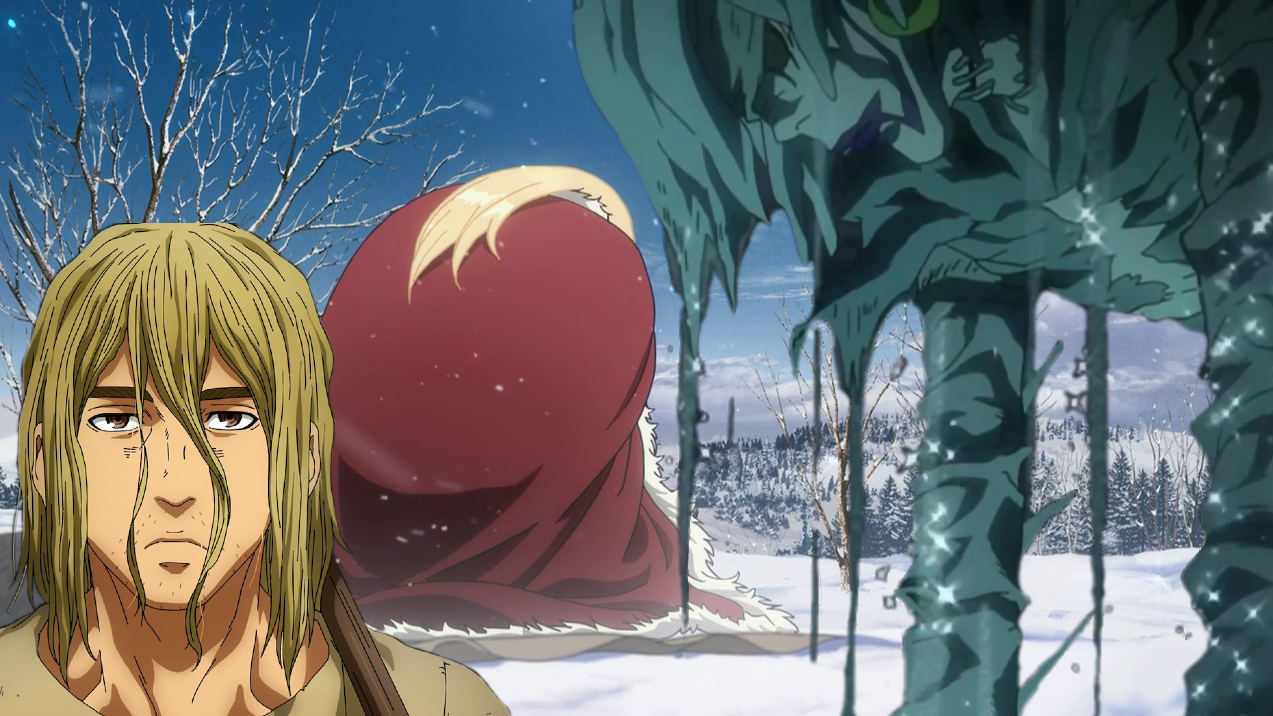
Agape – Unconditional Love
We now come to the last of the four core loves that everyone recognizes and can be found in C.S. Lewis’ book, and the love that drove me to write this entire post, Agape. Appearing over 200 times in the New Testament, Agape is commonly understood as the Christian or Godly love. It represents an unconditional, sacrificial, charitable love that knows no boundaries. It is love for your fellow man, for strangers you have yet to meet, from the highest of lords and executives to the lowest and most destitute of us. Agape means to give everything of yourself, to sacrifice with no expectation of return nor special reason other than to care for another person. It is often viewed as the highest of loves, the foundation of great societies and thought to come from God himself.
As the series that inspired this post, I can think of no better example of Agape in anime than Vinland Saga. And while the entire series is about Agape, how difficult a concept it is to both truly grasp and hold onto, I specifically want to talk about Thorfinn and Canute. The goal of both of these characters is to create a world without conflict, something they both abhor, to protect and look after even the weakest and most destitute of society. Yet they come to, and seek to accomplish it, in two very different ways. Thorfinn is a pacifist, seeking to establish a new land without war and violence, while Canute seeks to put an end to war by conquering everyone in his path, thus giving them no reason to war at all. One seeks peace for cooperation while the other seeks peace through domination. The importance of both though, where they find common ground, is in how they apply it.
Both Thorfinn and Canute apply their vision of peace equally to everyone they meet. Thorfinn doesn’t make exceptions to fight only “bad people”, nor does Canute spare his own men from his plans of conquest. For either of them to do so would be discrimination, and it is discrimination, not hate, that is the opposite of Agape. To apply love unequally, such as caring more for your son than someone else’s, your friends before a stranger, your home over your neighbors. These are unequal distributions of love, something Willibald points out when discussing Agape with Canute. This is the core of Thorfinn’s statement of “I have no enemies”, because an enemy implies an unequal distribution of love and care, whereas Thorfinn sees everyone as a living being deserving of life and respect. Hence, the universal, unconditional love of Agape.
What’s interesting though is that this understanding of Agape only came about after the spread of Christianity, and its use within the Bible. Prior to that, Agape more closely reflected the idea of the heroic sacrifice. Of giving yourself up with no expectation for survival or recompense so that those around you could live on. Think Portgas D. Ace from One Piece, or Rem from Death Note. Neither expected repayment for their actions, they selflessly sacrificed themselves for another knowing it meant their death. And while yes, that sacrifice was motivated by a different form of love, such as Storge for Ace of Philia for Rem, the sacrifice itself would be an act akin to the original meaning of Agape. It’s interesting how even ancient philosophical terms like this can change over great lengths of time, eh?
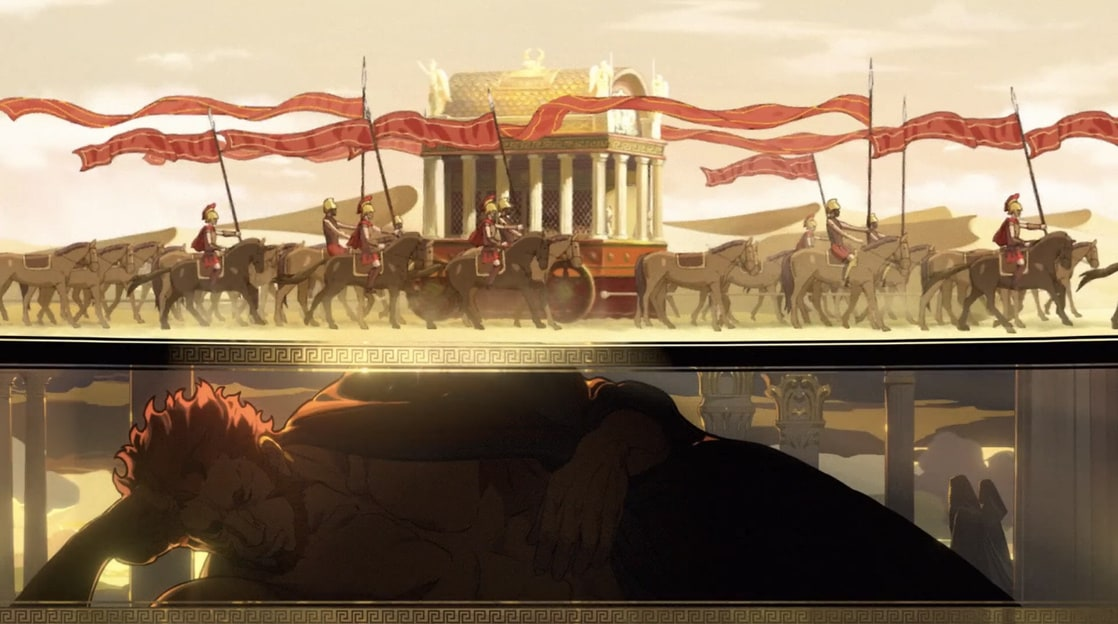
Pragma – Committed Love
With that we come to the less known, lesser discussed forms of love, the first of which is Pragma. As the name hints, Pragma is a pragmatic love. The love of politics, of deals and payments, an unsexy and logical, businesslike love. Think arranged marriages where both sides recognize the benefit of their union but don’t care for each other personally with any of the prior loves we have discussed, or how a wife may overlook their husbands infidelity for the sake of keeping the family together. It’s based on reason, not passion or mutual understanding. That isn’t to say they can’t coexist, Pragma can evolve or work together with other forms of love, but its roots are in logic and reason. Due to this, it’s also considered the love of duty and obligation, of knights and soldiers towards their king or commander.
In anime, I can think of no better example than Iskander, aka Alexander the Great, and his soldiers from the Fate series, specifically Fate Zero. Every single member of Iskander’s Noble Phantasm, the Ionioi Hetairoi, choose to be there. It is only through their unified vision, their oaths to their king and shared experiences, the combined efforts of thousands of men who have sworn themselves to Iskander, that he is able to summon and sustain such an ability. It is the embodiment of a soldiers love and dedication to their commander, shown by how even Waver, a mage from thousands of years in the future who eventually pledged themself to Iskander, can be counted amongst its number. Is Pragma sexy? Is it deeply philosophical or complex? Compared to the others we’ve talked about, no. It’s boring, logical, reasonable, but stable and long lasting. That’s what it means to be pragmatic.
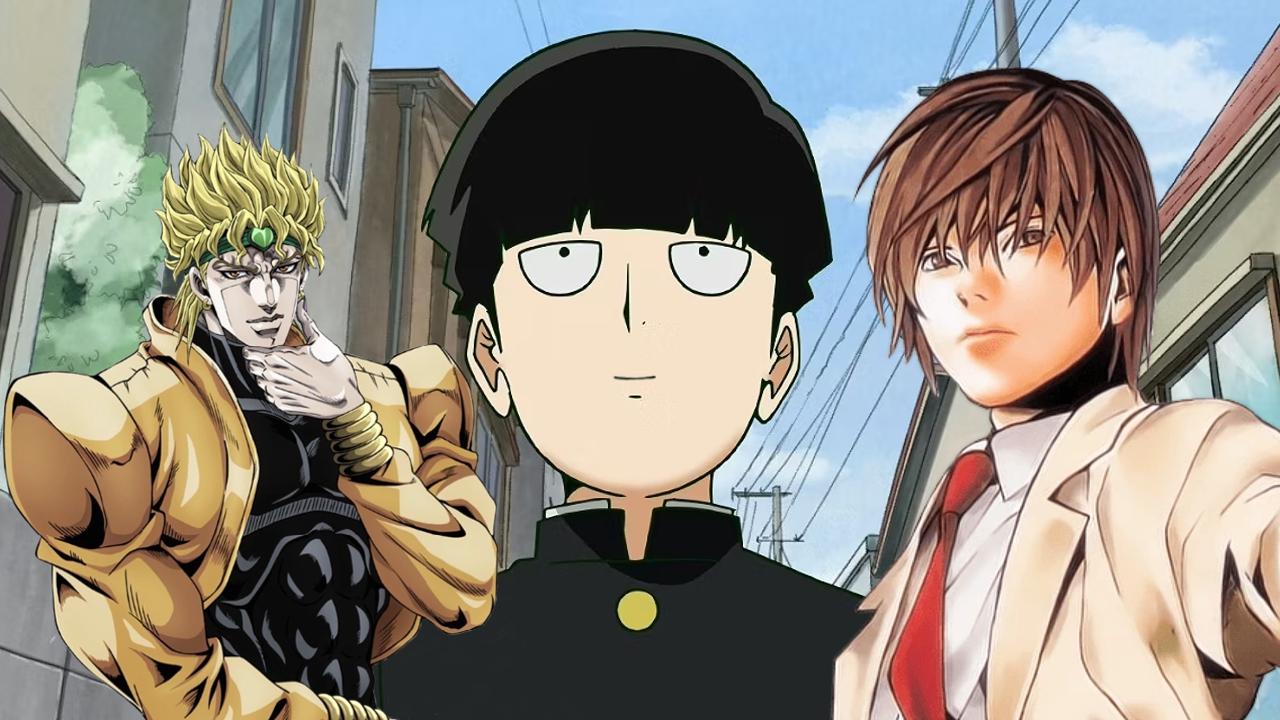
Philautia – Self Love
The next love we’ll talk about is one of the more interesting in my mind: Philautia, the love of the self. The core of Philautia is very simple I think, it’s that feeling of self-esteem, of being confident in oneself and comfortable in your own body. It’s the philosophy behind it that makes it interesting however. You see, the Greeks believed that you could not send out into the world what you had not already internalized within yourself. That without first loving and respecting yourself, you could not properly love and lift up others. After all, how can you give them something you do not have? In that sense, Philautia could be said to be the love that enables all other loves, the love growth and personal fulfillment.
In anime, the character that embodies this the most to me is Shigeo Kageyama, from Mob Psycho 100. His character, nay the entire show, is centered around Kageyama’s journey of self acceptance and personal growth. He begins by hating his own psychic abilities, the embodiment of his self, and expresses this through his explosions of emotion and passive interactions with the world. It’s only through being challenged, through the love of others who have accepted themselves, that Kageyama is able to able grow, which allows him in turn to better express his love for them and help them grow, as seen through Reigen. That’s the beauty of Philautia. Despite ostensibly being an internally focused, almost selfish form of love, when expressed properly and healthily, it is a force for growth for the individual and those around them.
This is not to say Philautia is faultless and perfect however, it can be taken too far. Should you love yourself too much, you will grow arrogant and narcissistic, blind to the thoughts and feelings of those around you. You’ll become so self absorbed that you’ll be unable to express love for anyone but yourself, putting nothing but egomania out into the world. In anime, think Dio Brando from Jojo’s Bizarre Adventure, or Light Yagami from Death Note. They have become so self absorbed that they believe they can do no wrong, that they are invincible and the opinions of others mean nothing. This narcissism is the result of taking Philautia to its extreme, of never taking those feelings of self-love and then spreading that love to those around of, never lifting them up as well. That’s the duality of Philautia.
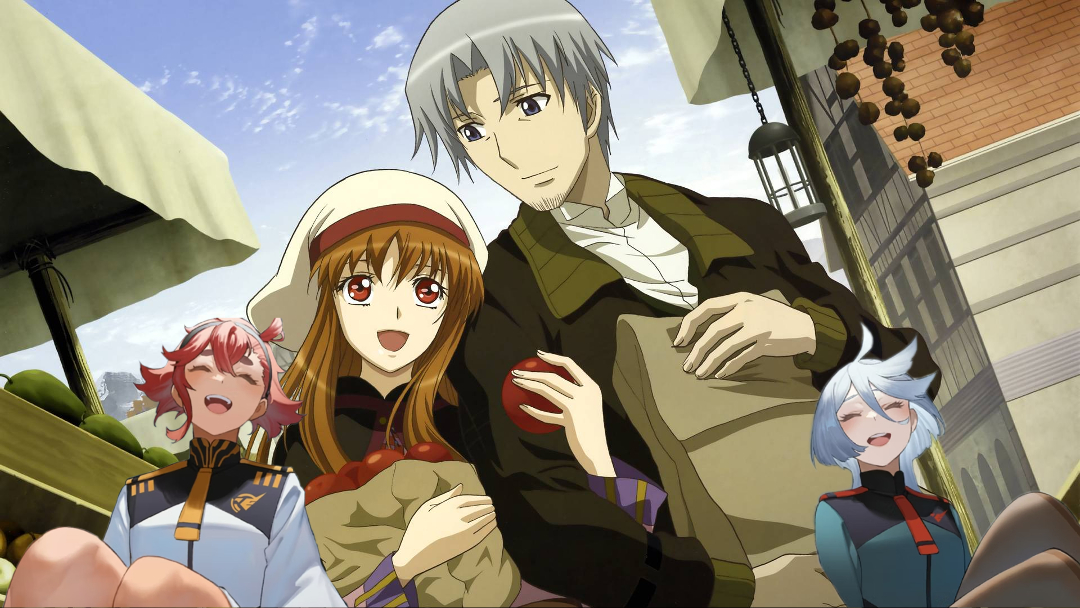
Ludus – Playful Love
This brings us to our penultimate love, Ludus, the playful love. Funny enough, Ludus isn’t actually a Greek word, it’s Latin. The Greek term for this love is Erotoropia, but Ludus is easier to say so it’s become the more commonplace term. That fun bit of trivia aside, Ludus is all about that flirty, teasing, non-committal, and occasionally childlike love. It’s that period when you first meet someone and are feeling things out, but neither of you know enough to truly be willing to commit to each other. As such, Ludus is generally an initial, transitory state of a relationship. It’s that period where you’re figuring each other out before you evolving into one of the previously discussed loves, like Philia or Eros. This isn’t to say Ludus doesn’t have value however, as so long as both sides understand what the relationship is, both can enjoy it.
A great example of this in anime is the early period of Holo and Lawrence’s relationship in Spice and Wolf. Holo is the quintessential “tease” character, she spends a great deal of time just messing with Lawrence. the witty banter, her constant teasing and guilt tripping or jokes at Lawrences expense. Described like this it may come off as mean spirited, but Spice and Wolf takes great pains to make it clear that Lawrence understands what this relationship is, often giving as good as he gets. However, what with Ludus being a transitionary state in a relationship, they don’t stay like this. Their teasing and flirting slowly evolves into an earnest respect and enjoyment of each others company. The banter allows them to learn about each other in a safe, fun environment. It’s this evolution from playful interactions to a greater, more earnest love, that is the core of Ludus
As a quick aside, I also mentioned the childlike qualities of Ludus, referencing the innocent first crushes of youth. Once again, these relationships are very surface level at first, getting together and breaking up very quickly, often without great lasting effect on either party. But much like the more adult teasing of Holo and Lawrence, these crushes can evolve into something more. An example of this would be Miorine and Sulette from Mobile Suit Gundam: The Witch from Mercury. In Gundam, Suletta knows absolutely nothing about Miorine prior to their “engagement” after she wins a duel. To her, this whole thing might as well be playing house, as she does her best in a relationship that isn’t based on how she feels about Miorine as a person at all. Again, this changes as the series goes on, they grow to care for each other. But their initial relationship was that of Ludus, and a one-way depiction at that.

Mania – Obsessive Love
Finally we come to our last love, one that needs no introduction and that I would wager anime is most known for, the obsessive love, Mania. As you can most likely guess, Mania is not a healthy form of love. It is selfish and obsessive. It’s the love of stalkers and jealousy, of codependence and desperation. Often those feeling Mania don’t actually love someone, but an idealized version of them that they have created. They love the idea of the person, the idea of a relationship that occurs on their terms and nobody else’s. Hardly sounds like a love at all, right? Well in fact, many don’t consider it to be one, instead treating it as word for madness. It has also been described as the extreme lack of Philautia, seeking or demanding external validation and love to the extent of madness, the same way arrogance and hubris is also an extreme.
In anime, Mania is basically another word for the Yandere. The one-sided, obsessive, violent love we see so often. Think Yuno Gasai from Mirai Nikki, Toga Himiko from My Hero Academia, or in some minds Akemi Homura from Madoka Magica. Each of them “loves” the lead character of their show, but they do so in an obsessive, controlling way. Yuno uses her diary to know everything Yukiteru does, every day, every hour, threatening any who would become close to him. Toga actively seeks to become Midoriya, or Uraraka depending on what arc you read. The way she “loves” people is by drinking their blood and becoming them, rather than getting to know or spending time with them. And as for Homura? Well I won’t spoil the movies, but she gets rather possessive as well. The point is, Mania is the sole form of Greek love with no benefits or redeeming qualities, with nothing positive about it whatsoever. It is, perhaps, the most extreme version of love there is, earning it it’s own word on this list.

Conclusion
With that, we’ve covered all of the major loves I wanted to discuss. I hope they were interesting to you, helped you learn something, maybe got you to think about other relationships you’ve seen in anime and what truly motivated those relationships. Most all of this could be expressed through the English language, but I feel it makes things more interesting when you frame it through older philosophical concepts, gives it a bit more depth to talk about. So yeah, I had a lot of fun researching and writing for this, picking out anime references and watching a few shows to understand them better. I’m not sure what my next article is going to be, I have a My Hero Academia post in the works but that’s going to be even more work than this. Whatever the case, I hope you enjoyed this and I’ll see you for some lighter posts between now and my next big article. Thanks again for sticking around the blog!

Wow, that was interesting. I’ve heard of the first four before but never tried to learn more about them, the last four I never really considered but it makes sense for them to be different aspects of love.
Your examples make me see some of these characters in a different light especially Iskander from Fate or make me apreciate them more like the Kawamoto family or Kageyamas own journey in Mob Psycho. I think it is time for a rewatch of some of these especially Mob Psycho since I watched all of them when they originally aired and possibly missed out on Kageyamas growth because of the time in between each season.
I’m glad you enjoyed it! This was one of those things I’ve wanted to write for a bit but could never fit into my schedule. Good to see it bein worthwhile to someone.